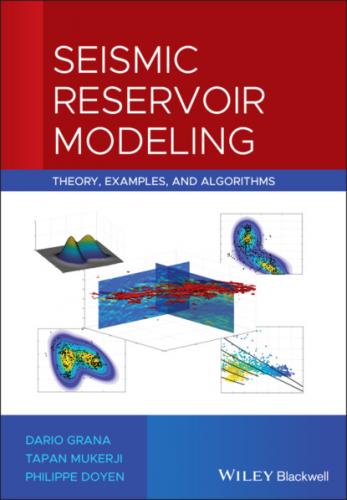(1.53)
and conditional covariance matrix ∑m∣d:
(1.54)
For the proof, we refer the reader to Tarantola (2005). This result is extensively used in Chapter 5 for seismic inversion problems.
Example 1.3
We illustrate the Bayesian approach for linear inverse problems in a geophysical application. We assume that the model variable of interest is S‐wave velocity VS and that a measurement of P‐wave velocity VP is available. The goal of this exercise is to predict the conditional probability of S‐wave velocity given P‐wave velocity.
We assume that S‐wave velocity is distributed according to a Gaussian distribution
We then assume that the measurement error is Gaussian distributed
If the available measurement of P‐wave velocity is VP = 3.5 km/s, then the posterior distribution of S‐wave velocity given the P‐wave velocity measurement is Gaussian distributed
and standard deviation σS∣P:
If the available measurement of P‐wave velocity is VP = 4.5 km/s, then the mean μS∣P of the posterior distribution is:
and the standard deviation is σS∣P = 0.025 km/s.
The posterior standard deviation does not depend on the measurement but only on the prior standard deviation of the model variable and the standard deviation of the error.
Конец ознакомительного фрагмента.
Текст предоставлен ООО «ЛитРес».
Прочитайте эту книгу целиком, купив полную легальную версию на ЛитРес.
Безопасно оплатить книгу можно банковской картой Visa, MasterCard, Maestro, со счета мобильного телефона, с платежного терминала, в салоне МТС или Связной, через PayPal, WebMoney, Яндекс.Деньги, QIWI Кошелек, бонусными картами или другим удобным Вам способом.
